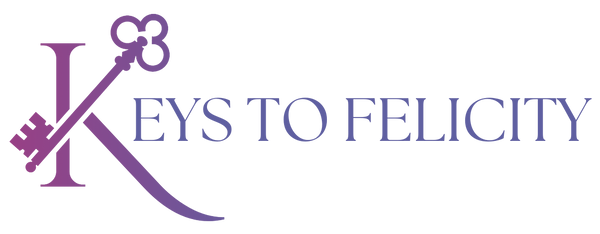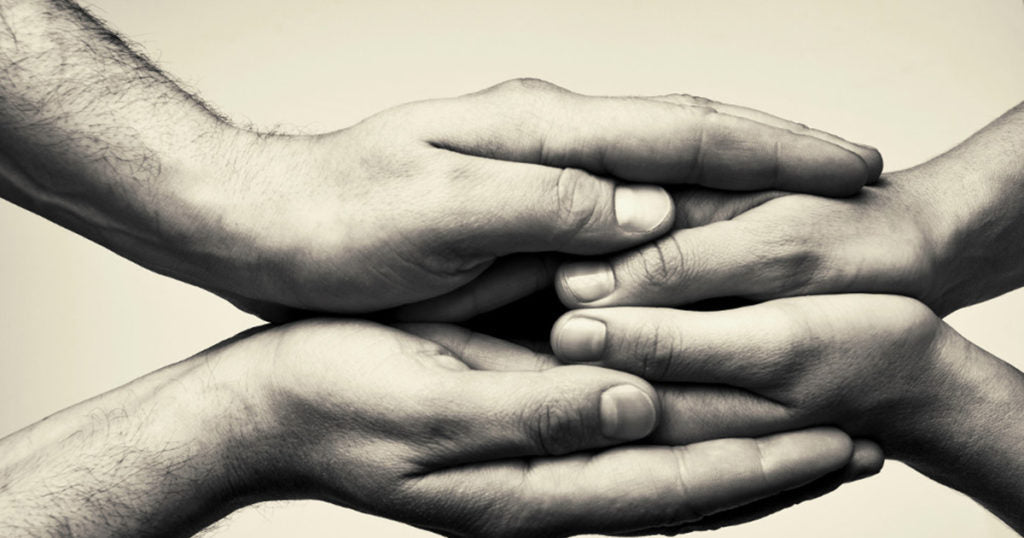How Do We Keep It Going? Finding Joy, Connection, and Purpose in a Wounded World
In a world that often feels like it's unraveling, the question lingers: How do we keep it going?
As someone who has weathered this year, I can attest—there’s been a toll. A heavy, aching kind of toll. The daily headlines, personal hardships, and collective grief all add up. And in the face of it, many of us are just trying to find a way forward.
Some immerse themselves in news and activism, working tirelessly from their corners of the world. Others search for community and collective action rooted in shared values. And some simply try to make it through each day, doing their best to manage without being consumed by the chaos.
I’ve had conversations with people who are angry, charged, and fueled by frustration. Others are weary, shut down, or lost in a fog of sadness. Some swing between extremes—grief and gratitude, numbness and fire. None of it is wrong. It’s just human.
So how do we keep going when it feels like everything is falling apart?
How do we support one another while we ourselves are trying to hang on?
History Offers Clues
This is not the first moment in time that has felt unbearable. I’ve been diving into books, research, and the lessons left behind by generations before us. From the Great Depression to the Holocaust, from Apartheid to civil rights movements—the ways people survived often shared common threads: resilience, community, resistance, faith, and joy.
-
The Great Depression taught frugality, self-sufficiency, and neighborly support.
-
During the Holocaust, survival often depended on the kindness of strangers, quiet acts of resistance, and unshakable faith in humanity.
-
Under Apartheid, mass protests, boycotts, cultural expression, and organizing became tools of liberation.
These movements weren’t just about resistance—they were about survival through connection.
We Need Each Other
In every chapter of history, people survived because they found each other. They created spaces—sometimes small, sometimes grand—where vulnerability was safe and truth could be shared.
And even now, amid our own struggles, we can do the same.
We need spaces that model safety for those who aren’t ready to speak. We need joy—not as an escape, but as a quiet rebellion. A radical act of healing and hope.
Joy Is Resistance
But where does joy live when the world hurts?
I’ve come to believe that joy is often found in kindness. In the small moments we offer and receive love.
-
Joy is the laughter that shakes your ribs and the quiet smirk that follows a terrible joke.
-
It’s the tail-wagging parade your dogs throw every time you come home.
-
It’s in children’s songs, teenagers’ exaggerated storytelling, and the eye contact that says, I see you.
Of course, privilege affects how easily joy can be found. It's hard to access joy when you're hungry or unsafe. But for those of us who can find joy, our task becomes sharing it. Spreading it. Lending it. Offering it freely.
A smile. A kind word. A warm gesture. An ear. A hug. These are gifts we can give.
Walking with Intention
I’m reminded of a moment I shared with a young client—maybe 5 or 6 years old. We talked about spreading kindness by walking mindfully.
With childlike trust and no hesitation, he took a step, closed his eyes, and whispered loudly (as kids often do),
“I wish you have a good day.”
Another step. “I love you.”
Another. “You are wonderful.”
And again. “You are fun.”
We slowly made our way down the hallway. He was leaving wishes, like invisible breadcrumbs of hope, for those who would walk the same path behind him.
Simple. Beautiful. Joyful.
📚 Further Reading for Reflection and Resilience
If this reflection stirred something in you, here are a few thoughtful books and tools that can support your journey toward healing, connection, and inner strength:
The Art of War by Sun Tzu
Though written centuries ago, this classic work on strategy and discipline still offers timeless wisdom. Beyond military context, The Art of War speaks to the power of self-mastery, knowing when to act, and how to endure with purpose. A powerful read for anyone seeking clarity in times of conflict or challenge.
The Four Agreements by Don Miguel Ruiz
A short but life-changing guide based on ancient Toltec wisdom. Ruiz lays out four simple but profound principles—be impeccable with your word, don’t take anything personally, don’t make assumptions, and always do your best—that can radically transform the way we relate to ourselves and others.
Keys to Felicity Workbook by Tiffany Walehwa
Created by trauma‑informed therapist Tiffany Walehwa, this workbook is a gentle companion for those seeking clarity, emotional regulation, and deeper self-awareness. It offers guided prompts, affirmations, daily check‑ins, and therapeutic exercises that meet you wherever you are on your journey. Perfect for anyone navigating anxiety, trauma, self‑esteem concerns, or simply longing to cultivate calm and resilience with intention.
As an Amazon Associate, I earn from qualifying purchases. These recommendations are shared with love and care to support your healing process.
So, How Do We Keep Going?
We keep living.
We keep walking paths paved by those before us, and we leave signs of love, intention, and resistance for those who will follow.
We build joy. We lend smiles. We whisper kindness into the world, hoping someone hears it when they need it most.
Because in the end, we survive together.
And maybe—just maybe—we heal that way, too.

